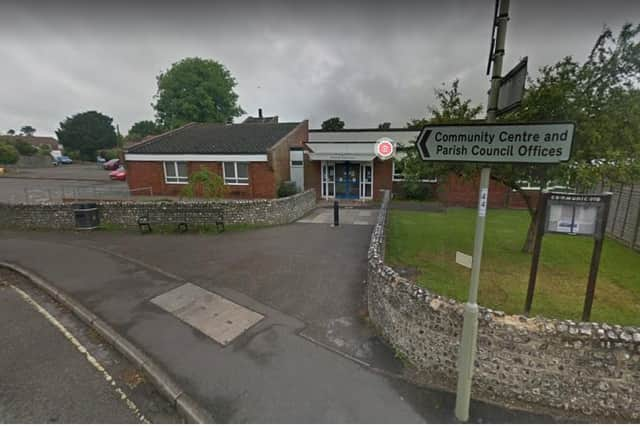Tribunal made ‘error of law’ with Denmead Practice doctor’s social media ‘ban’, judge rules
and live on Freeview channel 276
Dr Samuel White appealed against interim conditions imposed on his registration with the General Medical Council (GMC) following complaints about a video he posted to Instagram and Twitter in June.
The footage included Dr White raising concerns about the safety of the Covid-19 vaccine, testing methods and claiming ‘masks do nothing’.
Advertisement
Hide AdAdvertisement
Hide AdThe GMC referred the doctor to its Interim Orders Tribunal (IOT) to consider restrictions on his practice, and he was made subject to the conditions that he must not share views on the Covid-19 pandemic and ‘its associated aspects’ on social media and must remove existing posts on the subject.


At a High Court hearing last month, his barrister Francis Hoar claimed the tribunal had reached a ‘flawed’ decision and had ‘erred’ in 'failing to accord sufficient respect for Dr White’s right to freedom of expression'.
In a judgment released on Friday, Mr Justice Dove ruled the IOT decision was ‘wrong’ from a ‘purely procedural perspective’ when considering human rights law.
A partner at Denmead Practice until his resignation in February, Dr White brought his High Court challenge against the GMC in a bid to quash restrictions imposed on him.
Advertisement
Hide AdAdvertisement
Hide AdAt the hearing, the judge was told that in the seven-minute clip Dr White discussed why he could no longer work in his previous roles because of the ‘lies’ around the NHS and government approach to the pandemic, which he said were ‘so vast’ he could no longer ‘stomach or tolerate’ them.
In written arguments, Mr Hoar said Dr White, now a locum GP, had an ‘unblemished career’ with beliefs informed by ‘libertarian principles’.
He told the court the IOT-imposed restrictions would last for a maximum of 18 months and were ‘effectively a ban’ and a ‘severe imposition’ on his freedom of expression.
In August, the tribunal had concluded Dr White’s way of sharing his views ‘may have a real impact on patient safety’, adding that any doctor had a ‘responsibility’ to provide ‘sufficient and balanced information about Covid-19’ to allow any potential patients to make an ‘informed choice’.
Advertisement
Hide AdAdvertisement
Hide AdIt found Dr White allegedly shared information to a 'wide and possibly uninformed audience' and did not give an opportunity for 'a holistic consideration of Covid-19, its implications and possible treatments'.
In his ruling, Mr Justice Dove focused on freedom of expression arguments made by Mr Hoar.
He highlighted the outcome of the case 'does not in any way depend upon the merits of the views which the claimant has expressed in relation to the Covid-19 pandemic', adding the court 'expresses no view whatever in relation to the issues which the claimant has raised in respect of these matters'.
He said that under provisions of the Human Rights Act 1998, the tribunal was required to ask itself whether the GMC 'would probably succeed at any subsequent tribunal hearing in imposing the restrictions which were now sought'.
Advertisement
Hide AdAdvertisement
Hide AdHe said: 'The question or test to be applied is whether it is likely to be established at the final hearing that publication of the claimant’s views should not be allowed.'
The judge added it was 'clear that the IOT did not direct themselves to the tests required' under the Act.
He concluded there had been 'an error of law and a clear misdirection in the IOT’s decision-making process' and therefore the 'decision of the IOT was clearly wrong and cannot stand'.
He said it would be 'inappropriate' for the court to 'entirely remake the decision applying correct legal principles', adding its powers were limited to 'revocation of the conditions imposed'.
Advertisement
Hide AdAdvertisement
Hide AdThe judge said that outcome had 'no bearing whatever on the substantive merits of the parties’ competing positions on the issues', and concluded it may be that the GMC 'will wish the IOT to reconsider this case and, applying the correct test, urge the IOT to conclude that having done so an order is justified'.

